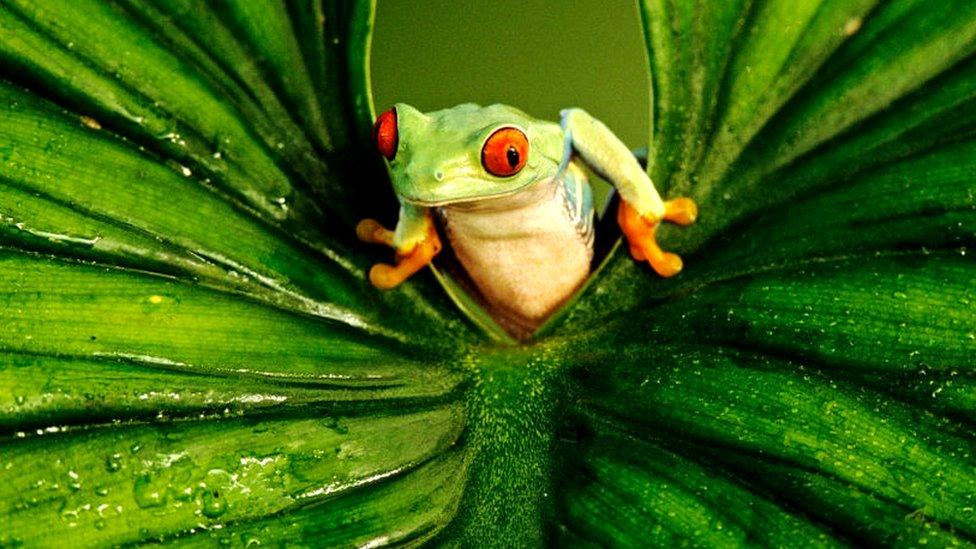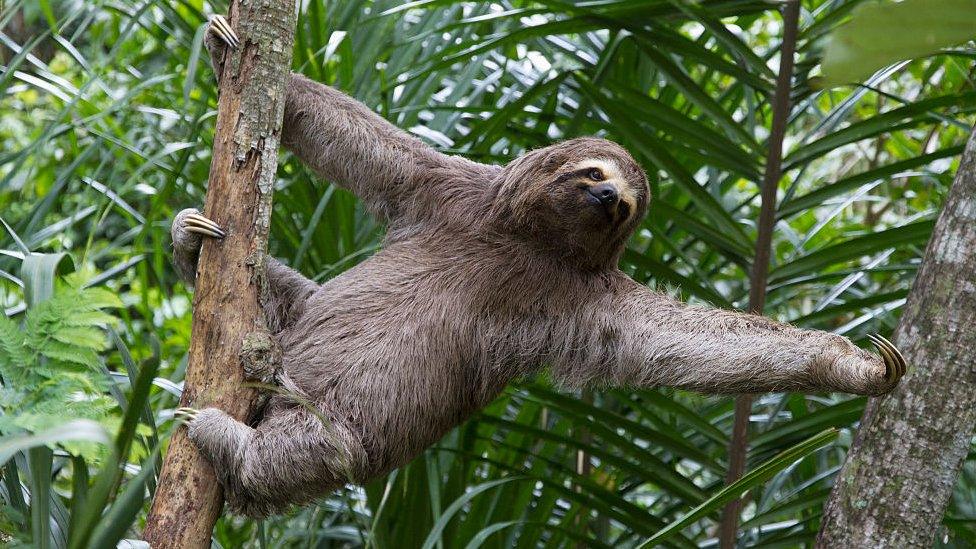Global rescue plan for nature 'overlooks genetic diversity'
- Published

Red-eyed tree frog peering through a leaf
A global plan to halt the loss of nature is "weak" in one key area, say scientists.
The new 10-year strategy to stop extinction must aim to protect the gene pools of all life on earth, according to conservation experts.
The action agenda must explicitly refer to the genetic diversity of all species not just those regarded as of value to humans, they say.
New targets will be agreed at October's Convention on Biological Diversity, external.
The first draft, external of the biodiversity plan, published in January, does not go far enough to protect the genetics of wild animals and plants, say 20 international researchers in a letter to the journal, Science, external.
They say the goal suggested for genetic diversity is "weak" and does not explicitly state that minimising the loss of the gene pool is crucial for all species, not just a few.
Prof Michael Bruford of Cardiff University, UK, said the previous target only considered domestic animals and plants, their wild relatives, and certain other species considered of importance for cultural or economic reasons.
"This as you can imagine is very much an anthropocentric view of biodiversity," he said. "The purview of the genetic target has to take into account all genetics of life on earth - all life has DNA or RNA and so why would we only be considering that for species that are of value to man?
"If we don't have good, sensible and explicit targets then nobody's going to even work towards conserving that diversity."

Brown-throated sloth on a tree in Bolivia
The year 2020 is considered a "super year for nature", when plans to tackle biodiversity loss over the next decade will be agreed at the conference of the parties in Kunming, China.
Last year, an intergovernmental panel of scientists warned that human activity is killing species in greater numbers than ever before, with an estimated one million species facing extinction within decades.
Scientists who signed the letter say the draft plan must include wider monitoring and evaluation of genetic diversity.
"What you really want to do is be looking at preserving genetic diversity within all species as a default, because genetic diversity allows species to be resilient to things like climate change and extreme events," said Prof Bruford.
Follow Helen on Twitter, external.